Francis Reiterates Appeal for Peace as Conflict Threatens to Spread to Lebanon
By Christopher Hart-Moynihan
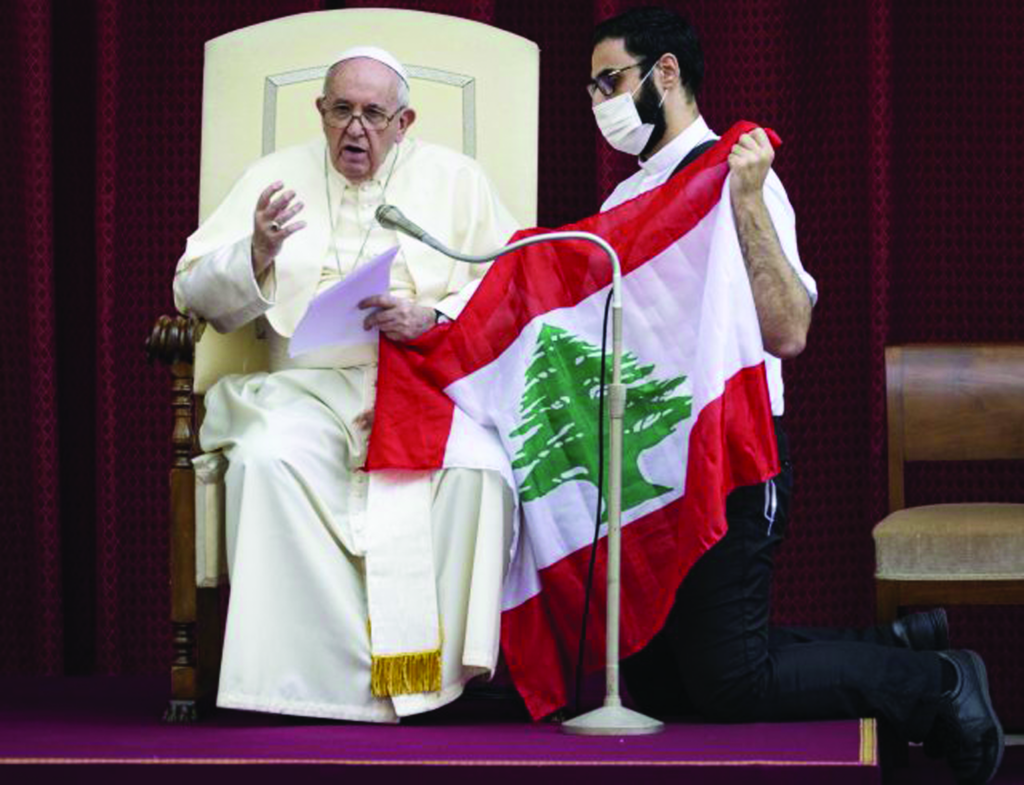
Pope Francis’ strong message to the Lebanese at the general audience, September 2, 2020, shortly after the massive and deadly explosion in Beirut harbor on Aigist 4, 2020 (Foto Siciliani-Gennari/SIR)
As the Vatican deals with unprecedented controversy and dissension, events in the Middle East continue to pose their own new and unprecedented challenges for Pope Francis’ 11-year-old pontificate.
On April 12, Francis wrote a public letter to the Al-Arabiya television channel reiterating his call for an end to the conflict in Gaza that threatens to spread throughout the Middle East.
In the message, Francis emphasized the ties between Christians and Muslims, referring to “our father Abraham” and stating, “This year, by a happy coincidence, the month sacred to Islam ends only a few days after the celebration of Easter, the most important religious feast for Christians.”
Francis’ call for peace is something he has repeated numerous times since Hamas’ October 7, 2023 terrorist attack on Israel and the subsequent invasion and occupation of Gaza by the Israeli Defense Forces (IDF). In the days following the October 7 attack, Francis acknowledged “the right of those who are attacked to defend themselves,” while nevertheless stating, “It must be understood that terrorism and war do not lead to any resolutions, but only to the death and suffering of many innocent people.”
Francis and the Vatican’s attempt to walk the line between, on one hand, decrying Hamas’ attack and affirming Israel’s right to self-defense and, on the other, seeking to end the seemingly endless violence and death in Gaza has led to criticism from several quarters. Following a November 22 meeting with a group of Palestinians at his residence, members of the group claimed Francis had used the word “genocide” to describe Israel’s actions in Gaza (Vatican spokesman Matteo Bruni subsequently claimed the Pope had not used the word). Then in comments made later in the day, Francis stated “This is no longer war; this is terrorism.” In response, the Association of Italian Rabbis released a statement stating, “The Pope publicly accused both parties of terrorism… These stances at the highest level follow problematic statements by distinguished members of the Church in which there is either no trace of condemnation of Hamas aggression or, in the name of supposed impartiality, they equate aggressor and aggressed.”
The Pope’s latest message once again emphasizes his unwavering commitment to stopping the violence, a stance he has also maintained with regard to the ongoing war in Ukraine. In fact, the letter is somewhat of a synthesis of many different appeals that the Pope has made with respect to both conflicts over the past several years. “God is peace,” Francis writes, “and he desires peace. Those who believe in him cannot fail to repudiate war, which does not resolve but only increases hostilities. War, as I never tire of saying, is always and only a failure: it is a road leading nowhere; it does not open new vistas, but stifles all hope.”
Francis also took the opportunity to mention the other conflict zones in the Middle East and his long-standing wish for the larger conflict in the region to come to an end: “I think too of war-torn Syria, Lebanon and the entire Middle East. Let us not allow the flames of resentment to spread, fanned by the baleful winds of the arms race! Let us not allow war to spread! Let us put an end to the inertia of evil!”
The danger of the war expanding from Gaza to Israel’s northern border with Lebanon has increased in recent weeks, as the IDF and Hezbollah, the Iran-affiliated Shia paramilitary group based in southern Lebanon, have exchanged fire more intensely across the border. Although there have been near-daily exchanges since the beginning of Israel’s invasion of Gaza on October 8 — including a March 30 Israeli bombardment that wounded three members of UNIFIL, the United Nations Interim (Peacekeeping) Force in Lebanon, and a Lebanese interpreter — April 12 seemed to indicate a more significant escalation as both the IDF and Hezbollah fired dozens of rockets across the border. The IDF claimed to have struck several Hezbollah sites, while the Hezbollah rockets were fired towards Israel’s northern Galilee region but were largely intercepted by the Israeli Iron Dome missile defense system or fell in unoccupied areas, according to IDF official statements.
The involvement of Hezbollah in the Israel-Gaza conflict threatens to broaden the six-month old conflict into a regional war. This is because of Hezbollah’s close links with the ruling regime of Iran, who provide funding and logistical support for the paramilitary group. Although Hezbollah has, to date, limited its involvement to aerial bombardment, the cycle of retaliation has been growing more severe in recent weeks as Israel has broadened its attacks to target not only Hezbollah, but also Iranian leaders providing it with logistical and military support. On April 1, the IDF conducted an airstrike on several buildings near the Iranian embassy in Damascus, Syria, killing several senior members of Iran’s Islamic Revolutionary Guard Corps. One of the men, Mohammed Reza Sahedi, was identified as a key liaison between Hezbollah, Syria, and Iran, “responsible for guaranteeing weapons shipments” to Hezbollah, according to a 2010 U.S. Treasury Department press release. In response to the Damascus airstrike, Iran launched more than 300 drones, ballistic missiles, and cruise missiles against Israel on April 13.
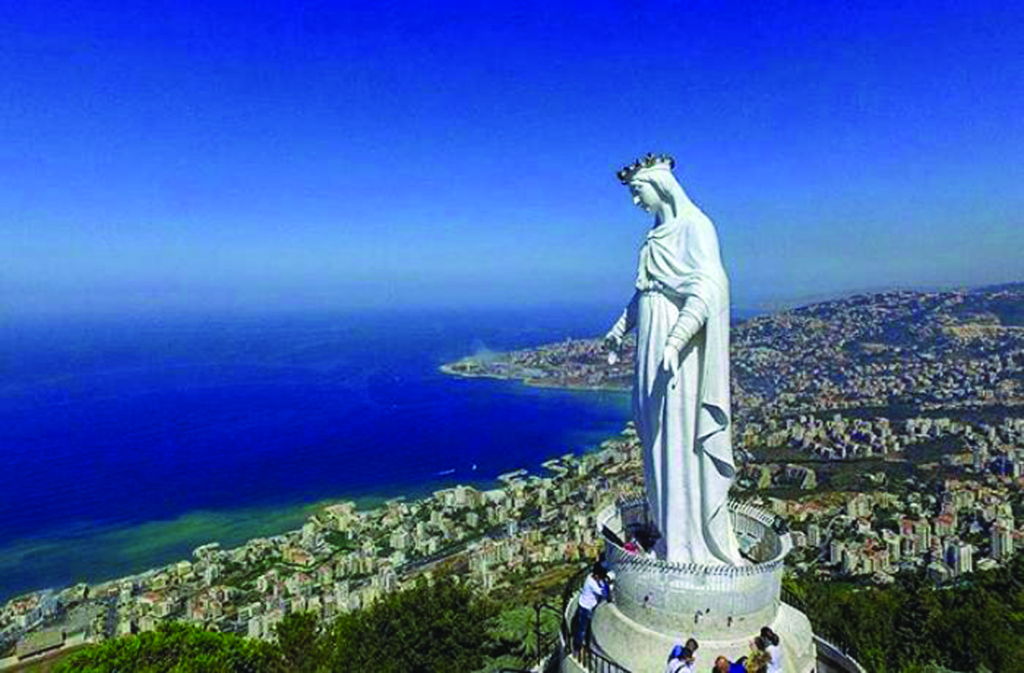
The statue of Our Lady of Lebanon, in Harissa, east of Beirut
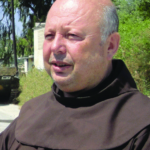
Bishop Hanna Jallouf, the Apostolic Vicar of Aleppo: “Let us pray, with the pope, that the weapons will be silenced and that there will not be an escalation that overwhelms Lebanon.”
The IDF’s airstrike on Aleppo drew criticism from Church leaders. In an April 1 interview with Asia News, a news agency promoted by the Pontifical Institute for Foreign Missions, Bishop Hanna Jallouf, the Apostolic Vicar of Aleppo, stated, “Now there is much more fear because this is the first time Israel has attacked a foreign embassy, which by definition is protected by international conventions, and it has thus crossed every red line.” He added, “Not even the terrorists have ever struck a diplomatic mission, in what appears to be a diversion to cover up the atrocities in Gaza… Let us pray, with the pope, that the weapons will be silenced and that there will not be an escalation that overwhelms Lebanon and, in a domino effect, leads to a regional and world war.”
Following six months of bombardment and steady escalation, however, there is now an air of inevitability about the probability of a full-scale war breaking out between Israel and Hezbollah.
Since the beginning of the war, Israel’s bombardment of southern Lebanon is estimated to have killed about 270 Hezbollah fighters, as well as about 50 civilians, according to news outlet Al Jazeera.
On April 8, Joanna Wronecka, UN special coordinator for Lebanon, and Aroldo Lazaro, the commander of UNIFIL, re-affirmed the severity of the situation in a joint statement, saying, “The unrelenting cycle of strikes and counterstrikes in breach of the cessation of hostilities constitute the most serious violation of Security Council Resolution 1701 since its adoption in 2006.”
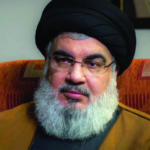
Hezbollah secretary-general Hassan Nasrallah: “The region has entered a new stage. Therefore, no one must stick his head in the dirt”
Hezbollah secretary-general Hassan Nasrallah added fuel to the fire with his April 7 comments in a televised address on the last Friday of Ramadan: “The region has entered a new stage. Therefore, no one must stick his head in the dirt. Everyone must prepare himself, arrange his affairs, and be careful… How can things go? We will be prepared for every possibility, and God willing, this development means that this foolishness that Netanyahu committed in the consulate in Damascus… will open the door to resolving this battle and ending it soon.”
With an April 16 announcement from the Ministry of Health in Gaza bringing the death toll in the territory to 33,843 since the outbreak of the war, alongside the 1,200 killed and 200 taken hostage during the October 7, 2023 Hamas attack on Israel, Pope Francis and other Catholic leaders have little choice but to keep repeating their calls for peace.
It remains to be seen whether their efforts for “the Israelis and Palestinians to live in two states, side by side, in security,” as Francis stated in an April 14 address at the Vatican, will be successful, even if, as the Pope added, “It is their deep and legitimate desire, and it is their right.”

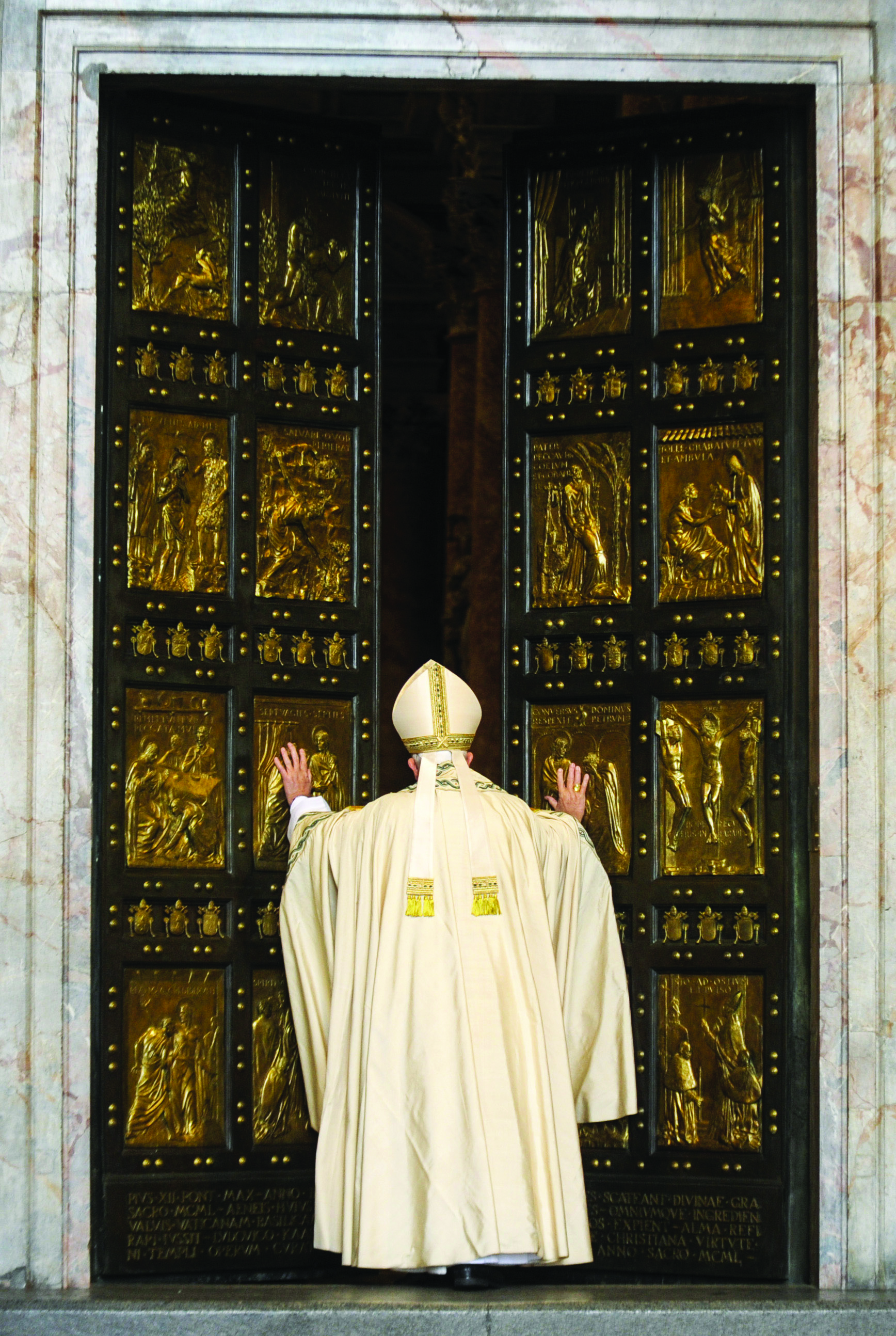


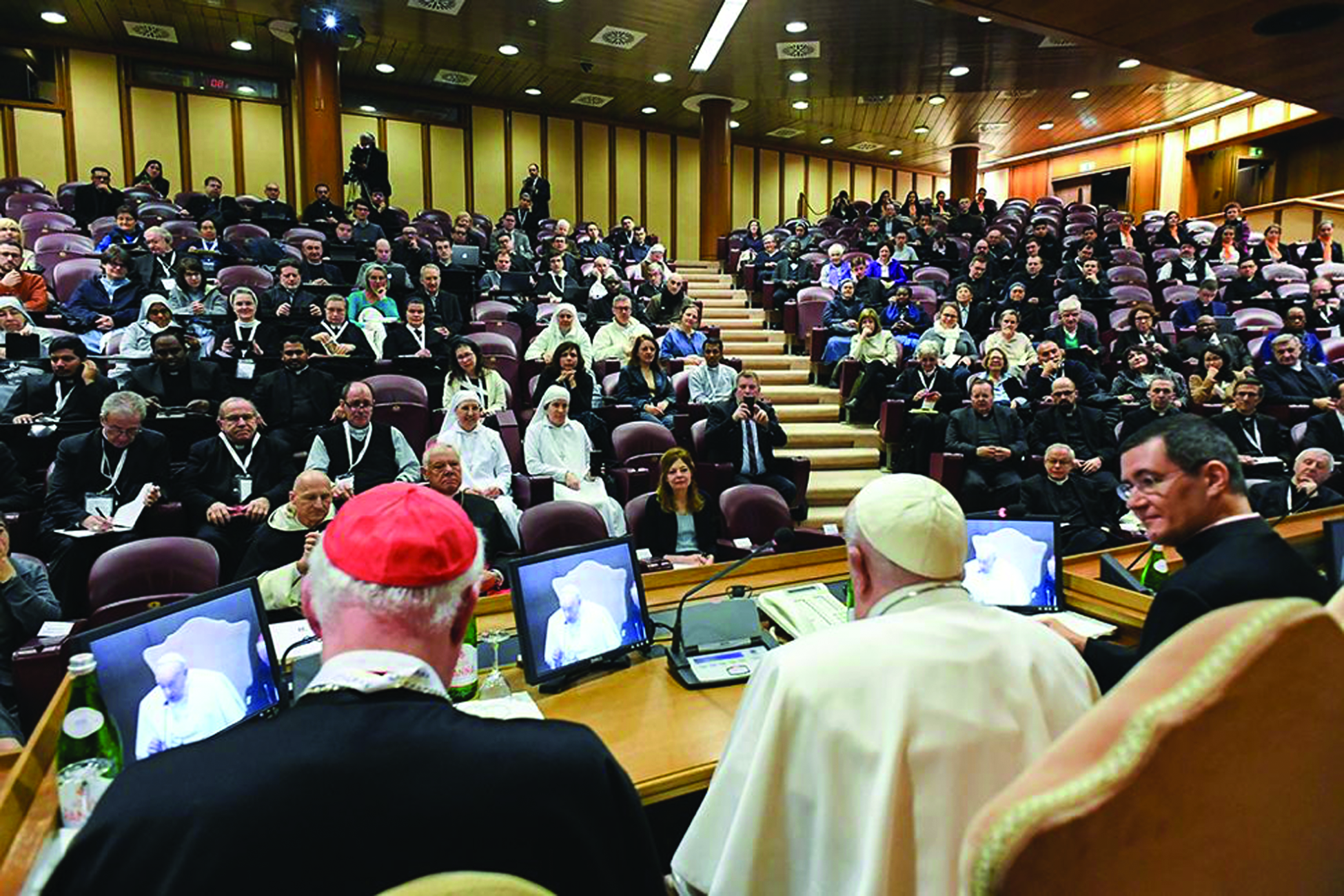

Facebook Comments